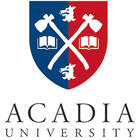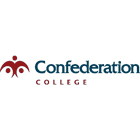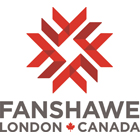- News and articles
- Events
- Find usIDP AustraliaIDP BahrainIDP BangladeshIDP CambodiaIDP CanadaIDP ChinaIDP EgyptIDP GhanaIDP Hong KongIDP IndiaIDP IndonesiaIDP IranIDP JordanIDP KenyaIDP KoreaIDP KuwaitIDP LebanonIDP MalaysiaIDP MauritiusIDP Middle EastIDP New ZealandIDP NigeriaIDP OmanIDP PakistanIDP PhilippinesIDP Saudi ArabiaIDP SingaporeIDP Sri LankaIDP TaiwanIDP ThailandIDP TurkeyIDP UAEIDP VietnamIDP Corporate
- Social
- English
Know why Canada is so popular with Nepalese students.
With nearly half a million international students, Canada is renowned for offering high-quality education at affordable tuition rates, along with globally recognized degrees. Coupled with an outstanding quality of life and abundant post-study work and immigration opportunities, studying in Canada from Nepal has become an increasingly popular choice for Nepalese students looking to pursue their education abroad.
Student visa requirements for Nepalese students to study in Canada
To study in Canada students require a study permit. While a student visa authorises your entry into Canada, a study permit validates your stay in Canada. It is a mandatory immigration document for an international student.
if you hold a study permit, you must remain enrolled and make reasonable and timely progress towards completing your course.
Your study permit is always accompanied by a visitor visa or Electronic Travel Authorization (ETA). Please note that a study permit is a document that allows you to study in Canada while a visitor visa or ETA allows you to enter Canada. Your expert will help you access the latest information and connect you with authorised migration experts.
Cost of studying in Canada for Nepalese students
Your expenditure on tuition fees depends on the type of qualification and institution you opt for. To cover this, you will need approximately between CAD 13,000 - CAD 35,000 a year.
Most commonly, courses in humanities, education, and arts are a little cheaper, while subjects such as medicine and engineering are likely to be more expensive. If you wish to study at a postgraduate level, the tuition fee is typically higher, and the costs vary depending on the program. As with most other countries, MBA programs are often the most expensive. The average cost for these programs ranges between CAD 30,000-42,000.
S.no. | Study program | Average annual fee |
1 | Undergraduate program | CAD 13,000 to CAD 20,000 |
2 | Postgraduate master's degree | CAD 17,000 to CAD 25,000 |
3 | Doctoral degree | CAD 7,000 to CAD 15,000 |
4 | Masters of Business administration (MBA) | CAD 30,000 to CAD 40,000 |
*Please note all fee figures are indicative
You can apply to various Canadian scholarships as well to bring down your educational expenses.
Read more about Cost of studying in Canada.
Scholarships to study in Canada
Here are some popular government-funded scholarships available for Nepalese students to study in Canada:
S.no. | Scholarship | Description |
1 | Canadian Commonwealth Scholarship and Fellowship Plan | This program is designed to enable students to pursue programs of advanced study and research at the Master's and PhD levels in Commonwealth countries other than their own. |
2 | National Research Council of Canada (NRCC) | Research associateship is offered to master degree holders in engineering and PhD holders in natural science or engineering disciplines. |
3 | Ontario Graduate Scholarship Program | For graduate students in a wide variety of disciplines. |
4 | Quebec Provincial Government Scholarship | For students studying in Quebec. Financial assistance is available to students studying master’s level or above. |
5 | Ontario Trillium Scholarship | First announced in November 2010 for the best doctoral students from around the world to study in Ontario. |
*This is an indicative list, speak with your IDP expert for details and the best available options suited to your profile
Know more here Canada Scholarships
Intakes in Canada
Unlike a single intake in Nepalese universities, Canadian colleges and universities offer three intakes. In some universities in Canada, intakes may also be referred to as a semester. The three intakes available in Canada are:
Fall: A popular intake among Nepalese students, The Fall intake starts in the month of September.
Winter: Starts in January; it’s best if you miss the September intake
Summer: Available for limited programs and colleges, the Summer intake usually starts around April and May
IELTS for studying in Canada
IELTS band score requirements vary among Canadian institutions for undergraduate (UG) and postgraduate (PG) courses. Typically, colleges commonly ask for an overall band score of 6.0 for UG courses and 6.5 for PG courses. In universities, an overall 6.5 band score is often required for both UG and PG programs. It is advisable to verify the specific IELTS band score requirements of your chosen institution when applying to ensure you meet the criteria.
Top courses to study in Canada
Here are the popular courses that you can choose for studying in Canada:
Computer science
Business
Engineering
Health sciences
Physiotherapy
Information technology
Animation and gaming
Hospitality
Top universities to study in Canada
When deciding which university to study at, it is crucial that you also look at the world university rankings.
University | Rankings 2025 |
University of Toronto | 25 |
McGill University | 29 |
University of British Columbia | 38 |
University of Alberta | 96 |
University of Waterloo | 115 |
Western University | 120 |
Université de Montréal | 150 |
McMaster University | 176 |
University of Ottawa | 189 |
Queen's University at Kingston | 193 |
Check where these Canadian universities rank on the Times Higher Education charts.
Cost of living in Canada for Nepalese students
Indeed, there exists a substantial difference between living in Canada and your home country. It is important to explore the Canadian lifestyle and cost of living of the place where you plan to stay. Quebec makes one of the most affordable Canadian cities with the cost of living far less compared to other cities.
Also, while applying for your student permit, you have to prove to the Canadian government that you have enough money to meet the financial expenses. So, keep that in mind!
When planning your budget, do include the following expenses:
Communication costs: Always set aside money in your budget for phone and data bills as you’d be calling your friends and family back home frequently. Look for low-cost calling plans as well as student discounts. The average monthly cost will be around CAD 20.
Textbooks and supplies: Buying textbooks can be costly. Books for engineering courses, for example, might cost anywhere between CAD 250 and CAD 350. The value of courses like law, medicine, and pharmacy can be even higher. You may keep this within your budget by buying used books, purchasing digital versions, or even enrolling in a library membership.
Personal expenses and incidentals: Laundry, toiletries, clothing, dining out, and so on will be part of your everyday spending. This is largely dependent on the type of lifestyle you select.
Know more about the cost of living in Canada
Job prospects in Canada
Canada continues to offer strong job prospects, especially for international students and graduates. As of 2024, the country’s labour market remains robust, with significant demand in various sectors. Here's an overview of current job prospects in Canada:
Growing Sectors
Technology: Jobs in software development, cybersecurity, and data science remain in high demand. Tech hubs like Toronto, Vancouver, and Montreal offer promising career opportunities with competitive salaries.
Healthcare: With an aging population, roles such as nurses, medical technicians, and healthcare aides are in high demand. The healthcare sector is projected to see steady growth.
Engineering and Skilled Trades: Civil, electrical, and mechanical engineers, along with skilled trades such as electricians and plumbers, are needed for infrastructure projects and development.
Green Energy: Canada is increasing investments in renewable energy, creating opportunities in environmental engineering, energy efficiency, and related fields.
Post-Graduation Work Permit (PGWP): Graduates can work in Canada for up to 3 years through the PGWP program, and this work experience can be crucial for transitioning to permanent residency. Many industries, including IT, finance, and healthcare, prefer candidates with Canadian experience.
Recent Data:
The unemployment rate in Canada as of 2024 is around 5.6%, showcasing a stable job market.
Job vacancies remain high, particularly in sectors like healthcare, construction, and tech, signaling favorable conditions for skilled workers.
The average salary for international graduates ranges from CAD 45,000 to 70,000 per year, depending on the field of study and location.
Work Opportunities for International Students: Canada’s flexible work policies allow international students to work part-time while studying and full-time during scheduled breaks. This enables students to build relevant work experience and make connections within their industries.
Regional Trends
Ontario and British Columbia have the highest job growth, particularly in tech, finance, and education.
Alberta offers opportunities in energy and natural resources, while Quebec is a leader in aerospace and AI.
*Source: https://www150.statcan.gc.ca/n1/daily-quotidien/240705/dq240705a-eng.htm
https://economics.td.com/ca-labour-market-outlook
https://www.roberthalf.com/ca/en/insights/research/positive-forecast-for-job-seekers-looking-to-make-a-career-move
https://canadahires.com/blog/canadas-2024-job-market-forecast-key-skills-and-booming-industries
Frequently Asked Questions (FAQs)
Ques 1: Is IELTS required for Canada?
Ans: IELTS serves as recognised proof of English language proficiency for Immigration, Refugees and Citizenship Canada (IRCC). When seeking admission to Canadian undergraduate or postgraduate programs, you will probably need to submit your IELTS scores as a mandatory component of your application.
Ques 2: How much GPA is required to study in Canada from Nepal?
Ans: GPA requirements may vary with the institution you are applying to. It’s best to check with the institution you have chosen or an IDP expert for the same.
Ques 3: Can I go to Canada with 50% in 12th?
Ans: The specific minimum percentage required for Canadian programs after completing the 12th grade varies depending on the chosen program. Nevertheless, students should strive to achieve a minimum score of 70% in their 12th standard examinations.
Ques 4. What are the work opportunities for international students in Canada during and after their studies?
Ans: International students in Canada are allowed to work part-time (up to 20 hours per week) during the academic year and full-time during scheduled breaks, such as summer holidays. After graduation, students can apply for a Post-Graduation Work Permit (PGWP), which allows them to stay and work in Canada for up to three years, depending on the length of their program.
Ques 5. What is the cost of studying in Canada for international students?
Ans: The cost of studying in Canada varies depending on the institution and program. On average, tuition fees for international students range from CAD 15,000 to CAD 35,000 per year. Additionally, students should budget for living expenses, which typically range from CAD 10,000 to CAD 15,000 annually, depending on the city and lifestyle.

Send funds securely with money transfer
Explore safe, convenient and fast payment solutions with our market leading partners.

Get your finances sorted with student banking
Set up your bank account before you arrive and secure your finances abroad.

Find your home away from home
We’ll help you discover student accommodation that makes you feel comfortable and at home, no matter where you are.
Cost of living calculator
Estimate how much you will need to cover your expenses including cost of living comparison for various country and accommodation options.











